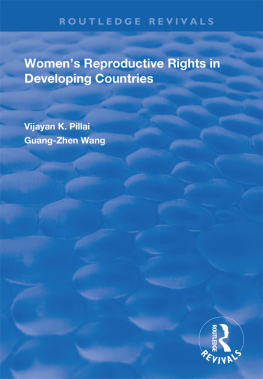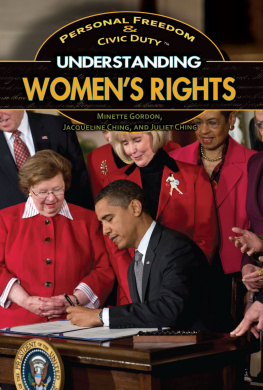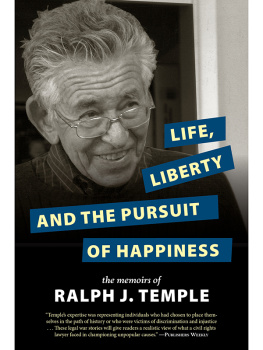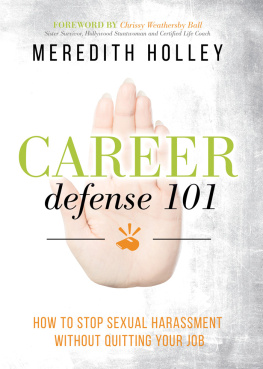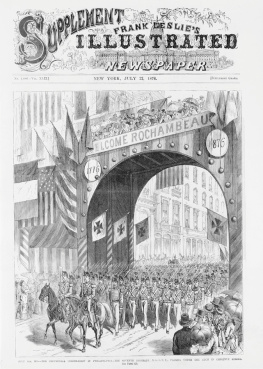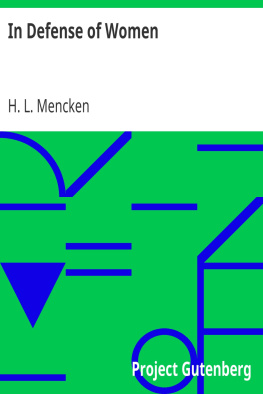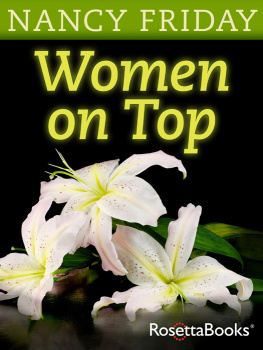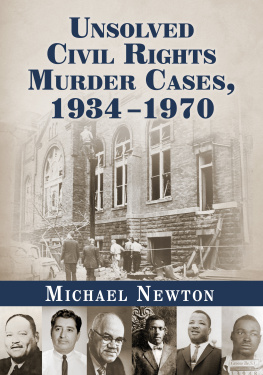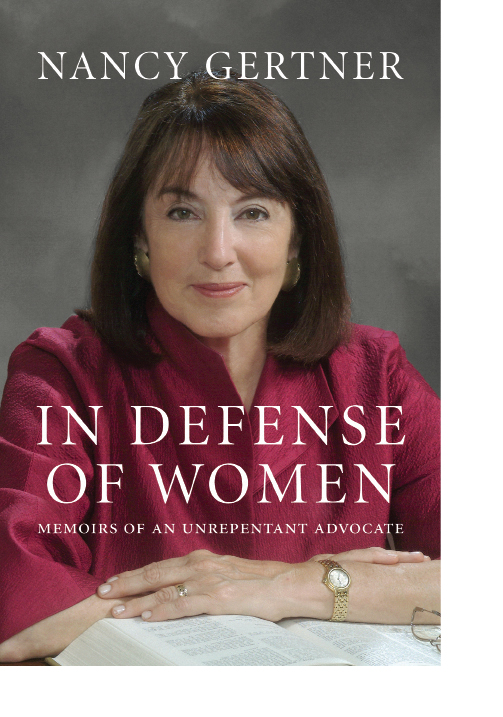NANCY GERTNER
IN DEFENSE OF WOMEN
MEMOIRS OF AN UNREPENTANT ADVOCATE
Beacon Press, Boston
To Sarah, Stephen, and Peter
for their endless love and patience
Contents
Preface
The women students at Yale Law School sponsored a panel in the late 1990s. What they wanted to know was how one became a judge. They didnt want a general perspective. These young women wanted answers to very concrete, very specific questionswhat courses, what jobs, what contacts?
There were two panelists; Judge Sonia Sotomayor and me. I had been a judge of the U.S. District Court in Massachusetts for only a few years. Sonia was then on the Second Circuit Court of Appeals in New York City. We were both Yale Law graduatesI in the class of 1971, she in the class of 1979.
Sonia went first, speaking deliberately: How does one become a judge? You graduate this fine institution with a stellar record. You work as a prosecutor in the celebrated Manhattan District Attorneys Office and then as a corporate lawyer in New York. You have clear principles, but you take care not to be publicly associated with controversial causes. Rather, you speak your mind carefully, cautiously, within existing institutions. You demonstrate in every way, in word and deed, that you can be a neutral, temperate jurist. And then you are nominated to become a judge.
Her story was compelling. In fact, in little more than a decade, she would be confirmed to the highest position that the American legal profession has to offer: the U.S. Supreme Court, an extraordinary tribute. And everything about her backgroundher hard-won and hard-fought career, certainly, but also her modest beginnings in the projects of the Bronxwould predict that she would be a superb judge.
It was my turn. I paused. How does one become a judge? I paused again. Yes, you graduate this fine institution with a stellar record. But thenand I paused for effect, ever the trial lawyer, my voice getting louder, the cadence quickeryou represent the first lesbian, feminist, radical, antiVietnam War activist accused of killing a police officer you can find; that would be your first major case in prime time. You take every abortion case in the Commonwealth of Massachusetts; you speak out on the major hot-button legal issues of the day in successive rallies on the Boston Common, or on television, or in the editorial pages of the newspapers. You represent defendants of all stripes, from those in political corruption cases to high-profile murder cases, and for the final coup de grace, you marry the legal director of the American Civil Liberties Union in Massachusetts. In short, after doing everything that, in this political culture, in this epoch of strident judicial politics, should disqualify you for the position, you become a judge.
Sonia turned to me, laughing. The students, at first a bit stunned, then joined in.
There is no right way, no clear path. Numbers of lawyers were oh-so-cautious throughout their legal careers and were never rewarded with a judgeship because of the vagaries of politics. Nor does your path predict the kind of judge that you will be. To be a judge, every lawyer needs to move to neutral. The issue is less where you start than where you end up and what you have spent your life doing. The fact is, I could not have lived my life any other way.
After almost twenty-five years as a civil rights and criminal defense lawyer, I was nominated for a federal judgeship in the spring of 1993. I was told to go through all the records of my career to see if there was something wrong, something that would embarrass President Bill Clinton. And so I did. I started with the Sexist Tidbits file. From the beginning of my career, I had compiled a growing file called Sexist Tidbits, in which I kept personal notes as well as diaries, and through which I chronicled the pain of breaking into this male profession, of proving, first to myself and then to others, that I was capable. I wrote down what I was feeling because I did not allow myself the luxury of saying these things out loudthat I feared that I would never be up to snuff, that the skeptical comments by the male lawyers I met about women trial lawyers mirrored my own self-doubts.
I went through every transcript, all the videotaped sound bites hastily blurted into microphones outside courthouses; I had saved them all. I went through all the clippings, the speeches, the articles, the causes, the clients. It seemed like everything Id done in the last twenty years could embarrass the president. What was clear to me, however, was that none of it should.
And when it was apparent that I would be confirmed, I wanted to memorialize these stories, if only for my kids, my friends, myself. I had been there, done that. It had been quite a ride; important lessons had been learned personally and professionally; and maybejust maybesome good had been done.
Being a judge, it was said, was the pinnacle of ones career. But I worried that that identity, important though it was, threatened to obliterate all traces of the earlier one. It was as if conceiving of me in my new judicial role required wiping out the memory of the advocate, the activist, the trial lawyerroles that had meant so very much to me, representing people whom I had cared so much about, causes that I had taken so much to heart.
Shortly after I was confirmed, a woman toll taker on the Mass. Pike recognized me as I was blazing through on my way to work. She was about my age. She told me that she had followed my career from the beginning and congratulated me on becoming a judge. Then there was another, and another, in a grocery store, behind the counter at Lechmeres, in a bookstore, at a party, in letters that flooded in after my nomination was announced. They too knew of my work, from the first celebrated murder case to this moment. Why?
Charles Black, a professor of mine at Yale Law School, wrote of the importance of telling the stories of the excluded, what others have called the outsider stories. He reminded us that it was only one generation ago that there were people whose living grandparents had been slaves.
Perhaps I should tell my story, I thought. The gains of women in the past two decades were so recent, and so fragile. Peopleespecially womenneed to be reminded that it had been only twenty years since women had entered this profession in force, that in the memory of those of us in our fifties and sixties were the painful slights and insults of the 1960s and 1970s, a sense of exclusion not subtle, not vague, but palpable and overt. The public had to guard against being fooled by the fact that some of our numberlike me, like Justice Sotomayorhad made it to high-status positions. It seemed especially important now, when the media touted the end of the womens movement, when younger women were said to be rejecting feminism and the choices of my generation.
It was also important to tell the stories of civil rights and civil liberties lawyers and the principles they embodied as legal services to the poor were at risk, as more and more law students, buried under loans, eschewed public service, as lawyers appeared less and less like members of a revered profession and more like ordinary businessmen and businesswomen. New lawyers need to see that you can do what you set out to do, make principled decisions, align your heart and your work, and reject money as the only measure of value.
When I was interviewed by Senator Edward Kennedy, who was to propose a candidate for the president to nominate for a federal judgeship, I thought it unlikely that I would ever make the cut. I ended the interview by saying: Senator, I have a bone to pick with you (a pretty impertinent comment for one seeking a federal judgeship). I said that if you value the things you say you do, at some pointperhaps not even with meyou need to propose a civil rights lawyer as a judge, to validate this career path. He did.


